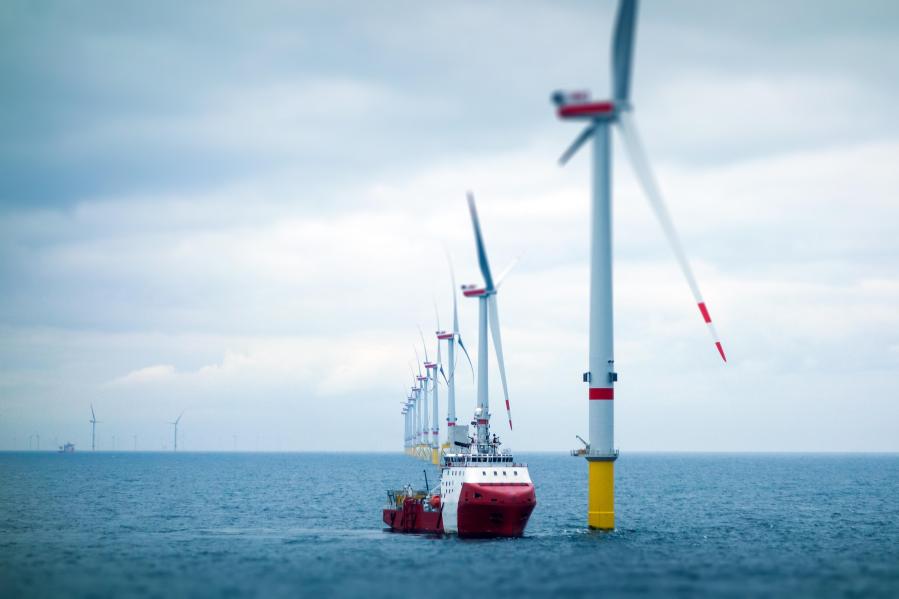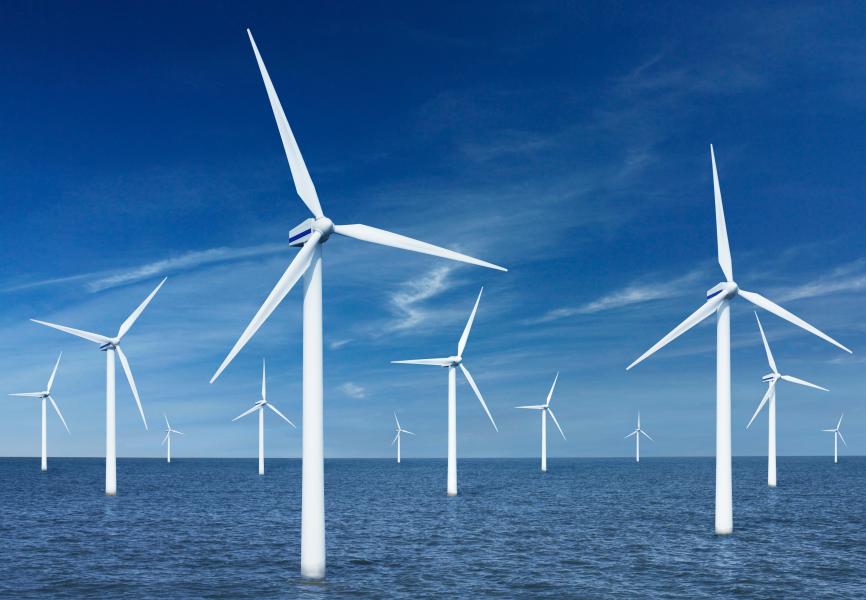Offshore wind energy in the North Sea is expected to grow significantly in line with the objectives of the Paris Climate Agreement. By 2040, North Sea offshore wind power is expected to reach 70-150 gigawatts of electricity, corresponding to around one fifth of the EU’s power consumption.

Space for offshore wind farms close to shore is becoming increasingly limited and subsequent offshore wind developments will need to move further from shore.
With strongly increasing levels of offshore wind and further offshore developments in deeper water, the complexity of the developments will increase and put upward pressure on cost levels across the value chain: from offshore wind farm and transmission assets to onshore grid integration.
Although this cost increase may be offset in part by increased wind resources, innovation is required on all fronts to keep cost levels competitive.

The North Sea Wind Power Hub project proposes a solution: creating one or more hub(s) (possibly as an artificial island) far offshore as a connection point for surrounding large-scale offshore wind farms in combination with international trade corridors bringing power – and possible conversion into hydrogen using power-to-gas technology – to markets onshore.
An island hub could accommodate several converter stations and connect wind farms. It could also serve as a base for the construction and maintenance of offshore wind farms by creating a nearshore environment. Building a power hub in combination with international trade corridors could significantly cut costs, compared to building offshore wind farms nationally without combination with trade corridors.
Instead of having each country connecting its own offshore wind farms, the first calculations show that up to 30% of the costs could be saved by effecting an internationally coordinated roll-out.
The North Sea Wind Power Hub project aligns with the EU’s energy priorities by having a significant impact on energy markets and via the integration of more than two EU countries.
The Advisory Hub will assist the North Sea Wind Power Hub consortium, composed of TenneT Netherlands, TenneT Germany, Energinet, Gasunie, and Port of Rotterdam, to assess risks and develop business models that will support the financial and economic viability of the project.





